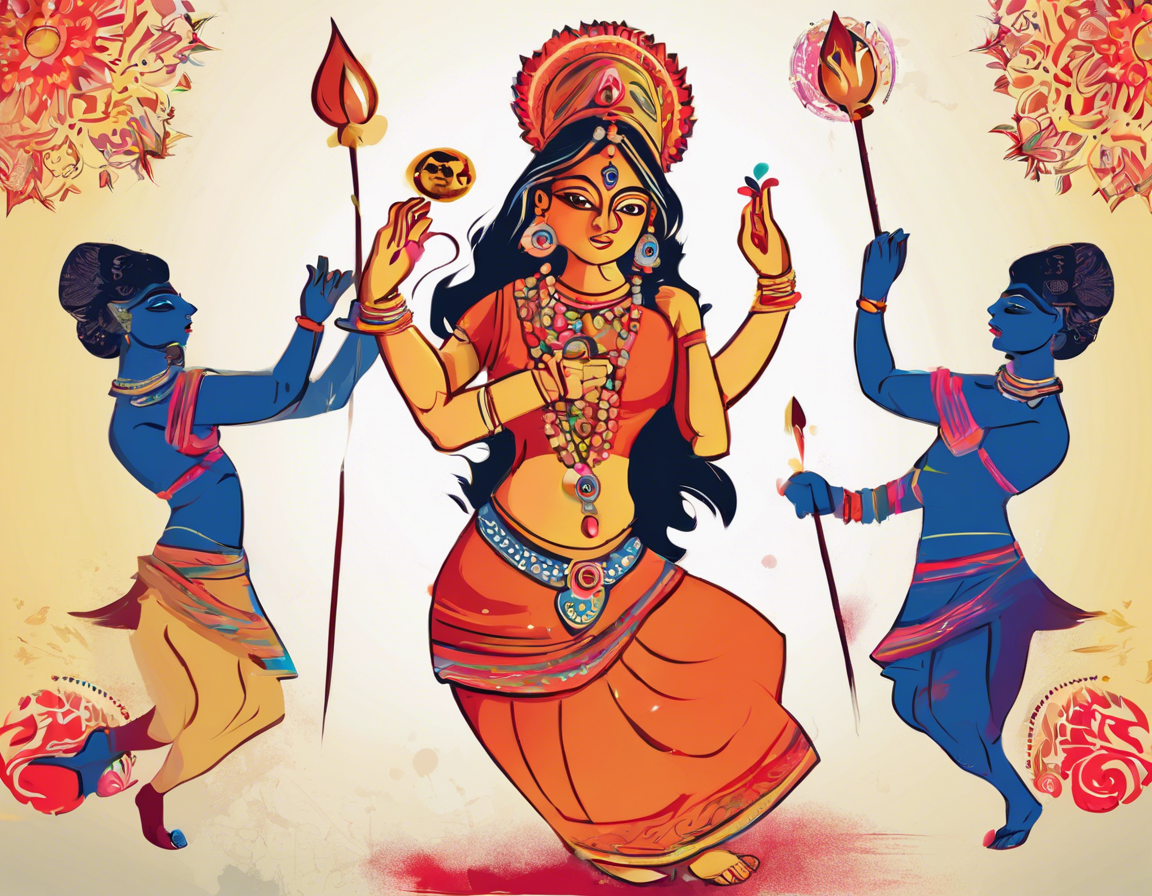
Guide to Gupt Navratri 2024: Significance and Celebrations
Navratri, a nine-night festival dedicated to the worship of Goddess Durga, is celebrated with great fervor and devotion by Hindus across India and around the world. However, there is a lesser-known Navratri that is observed in the Hindu month of Magha (January-February) called Gupt Navratri. This festival, also known as Magha Gupt Navratri, holds significant spiritual importance and is celebrated with traditional rituals and practices. In 2024, Gupt Navratri is set to begin on January 23rd and end on January 31st.
Significance of Gupt Navratri:
Gupt Navratri is considered a sacred period for invoking the blessings of Goddess Durga and seeking her protection from evil forces. The term “Gupt” means hidden or secret, implying that during this period, the worship of the Goddess is done quietly and with utmost devotion.
Gupt Navratri Dates for 2024:
- Start Date: January 23rd, 2024
- End Date: January 31st, 2024
Celebrations and Rituals:
1. Fasting (Vrat):
Fasting during Gupt Navratri is a common practice observed by devotees to purify the body and mind. Some people observe complete fasting, while others opt for partial fasting by consuming fruits, milk, and specific food items.
2. Daily Puja and Homam:
Devotees perform daily puja (ritual worship) of Goddess Durga during Gupt Navratri. Some devotees also conduct homam (fire ritual) to seek the blessings of the Goddess and ward off negative energies.
3. Chanting of Mantras:
Reciting Durga mantras and prayers is an integral part of Gupt Navratri celebrations. The Durga Saptashati and Durga Chalisa are commonly chanted during this period.
4. Meditation and Spiritual Practices:
Gupt Navratri is a time for introspection and spiritual growth. Many devotees engage in meditation and pranayama to connect with the divine energy of Goddess Durga.
5. Donation and Charity:
Offering donations and charity during Navratri is believed to bring blessings and prosperity. Many devotees donate food, clothes, and money to the less fortunate during this auspicious period.
FAQs (Frequently Asked Questions)
1. What is the significance of Gupt Navratri?
Gupt Navratri is a hidden or secret form of Navratri dedicated to the worship of Goddess Durga. It is believed to be a powerful time for spiritual growth, protection, and seeking blessings from the Goddess.
2. How is Gupt Navratri different from Sharad Navratri?
Gupt Navratri is observed in the Hindu month of Magha (January-February), whereas Sharad Navratri is celebrated in the months of Ashwin (September-October). While Sharad Navratri is more widely celebrated, Gupt Navratri holds its significance for those seeking a more intimate and secretive form of worship.
3. What are the common rituals observed during Gupt Navratri?
Common rituals during Gupt Navratri include fasting, daily puja of Goddess Durga, chanting of mantras, meditation, and donation to the needy. These practices are believed to bring spiritual purification and divine blessings.
4. Can I eat specific foods during Gupt Navratri fasting?
During Gupt Navratri fasting, devotees often consume satvik (pure) foods such as fruits, milk, nuts, and specific grains like Kuttu (buckwheat) and Singhara (water chestnut) flour. It is advisable to avoid consuming non-vegetarian food, alcohol, and onion/garlic during this period.
5. How long is Gupt Navratri celebrated?
Gupt Navratri lasts for nine days, similar to Sharad Navratri. It begins on the first day of the bright half of the Hindu month of Magha and concludes on the ninth day, also known as Mahashtami.
6. Is it necessary to perform homam during Gupt Navratri?
Performing homam (fire rituals) during Gupt Navratri is optional but considered auspicious for seeking the blessings and protection of Goddess Durga. It is a sacred practice that helps devotees connect with the divine forces.
7. Can children and elderly people observe fasting during Gupt Navratri?
Fasting during Gupt Navratri is a personal choice and depends on the individual’s health and capacity. Children, elderly people, and those with health conditions are advised to consult a healthcare professional before fasting. They can opt for partial fasting or dietary modifications based on their health needs.
8. How can one make the most of Gupt Navratri spiritually?
To make the most of Gupt Navratri spiritually, one can engage in daily puja, chanting of mantras, meditation, self-reflection, and acts of kindness like charity and donations. Connecting with the divine energy of Goddess Durga through these practices can bring inner peace and spiritual growth.
9. Are there any restrictions during Gupt Navratri?
While there are no strict rules, it is advised to maintain a satvik lifestyle during Gupt Navratri, which includes avoiding non-vegetarian food, alcohol, tobacco, and negativity. Devotees are encouraged to focus on positive thoughts, prayers, and actions during this sacred period.
10. How does one conclude Gupt Navratri?
Gupt Navratri concludes on the ninth day with the celebration of Mahashtami, where devotees worship Goddess Durga with devotion and offer prayers. It is a time for expressing gratitude for the blessings received during Navratri and seeking the continued grace of the Goddess in one’s life.
In essence, Gupt Navratri is a time of introspection, devotion, and spiritual renewal for devotees seeking the blessings and protection of Goddess Durga. By engaging in traditional rituals, fasting, chanting of mantras, and acts of charity, believers can deepen their connection with the divine energy and experience inner transformation during this auspicious period.


